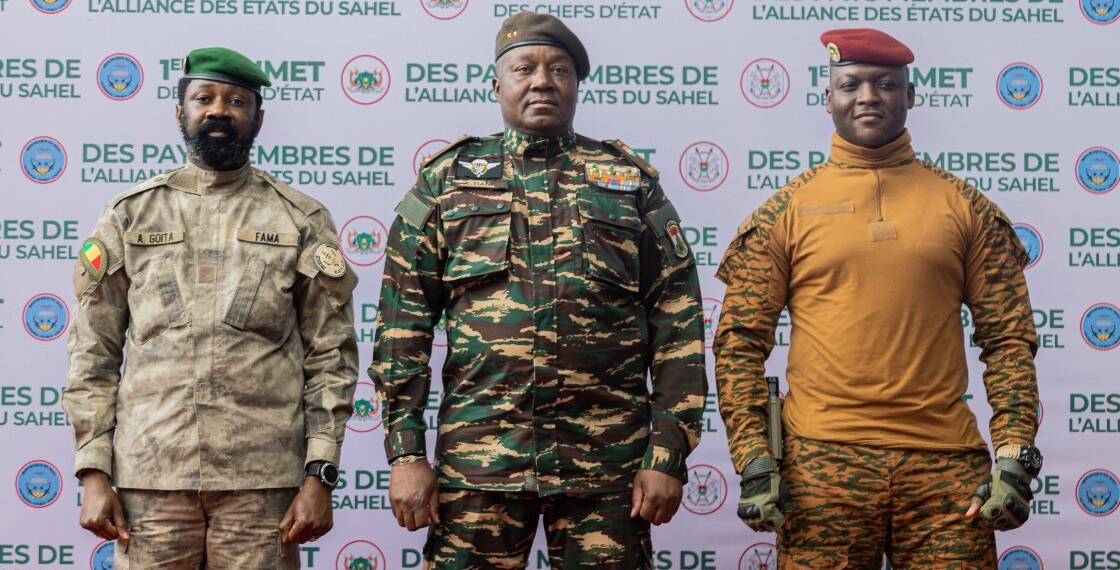Burkina Faso’s President, Captain Ibrahim Traoré, has accused foreign powers of attempting to destabilize the newly formed Alliance of Sahel States (AES), a confederation comprising Burkina Faso, Mali, and Niger. Established in July 2024, the AES aims to promote regional sovereignty and economic independence.
Traore has accused foreign powers of attempting to sabotage the Alliance of Sahel States (AES) by pressuring member countries to betray the others.
Speaking during a national flag-raising ceremony on Monday, the leader claimed the AES remains a “source of concern” for imperialist actors, the Burkina Faso Information Agency reported.
“We are approached every day by imperialists who want to force one of the three states to betray the others,” Traore said.
“We’ve been dealing with this for a long time. Each time, it’s a maneuver to convince a state to leave the Confederation. And this should make us think,” he added.
President Traoré emphasized that the push to destabilize the AES is driven by external interests in the region’s vast natural resources. He highlighted that while countries like Niger possess abundant uranium, their own streets remain without electricity, attributing this disparity to historical exploitation by foreign powers. At the AES summit, Traoré declared, “The imperialists see Africa as an empire of slaves,” underscoring the confederation’s commitment to self-determination and equitable development.
In recent weeks, officials in Ouagadougou and Niamey have also accused France and Ukraine of sponsoring terrorism to weaken the Sahel military governments.
Late last month, Niger’s transitional leader, General Abdourahamane Tchiani, accused French operatives of collaborating with rebel factions along border regions in neighboring Benin and Nigeria as part of a coordinated plot to destabilize his country and the wider Sahel. Ukraine has also been implicated for allegedly doing the “dirty work” of Western powers by training and supplying weapons to insurgents behind more than a decade of jihadist violence in Mali.
Strategic Objectives of the AES
The AES seeks to:
1. Establish a common market and a proposed currency.
2. Implement free movement of people and goods.
3. Develop infrastructure in energy, agriculture, and mining sectors.
4. Create an investment bank and a stabilization fund to reduce reliance on institutions like the World Bank and International Monetary Fund.
These initiatives aim to counteract neocolonial influences and promote sustainable development within the region.
Reactions and Allegations
The formation of the AES has drawn criticism from Western powers, particularly France, which has historically maintained a strong presence in the Sahel. In response to the AES’s establishment, France has reduced its military footprint in the region. However, President Traoré has alleged that France and other Western nations are supporting Islamist groups to create instability and undermine the confederation’s efforts.
The AES’s departure from the Economic Community of West African States (ECOWAS) marks a significant shift in regional dynamics. The confederation’s leaders have expressed a desire to chart an independent course, free from external interference. This move has implications for regional security, economic cooperation, and the broader geopolitical landscape, as the AES seeks to establish itself as a sovereign entity in the face of external pressures.
As the AES continues to navigate challenges and opportunities, its success will depend on the ability to balance internal development with external relations, ensuring that the region’s resources benefit its people rather than foreign interests.








